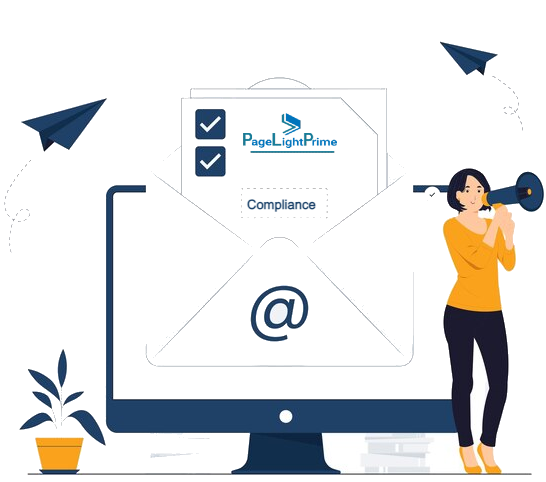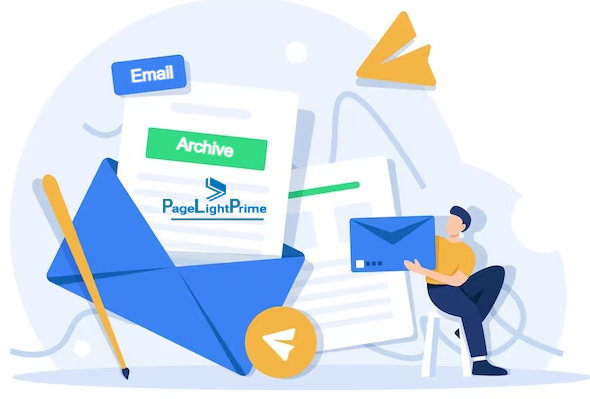Email Retention for Law Firms
For law firms, email communication is not only essential for day-to-day operations but also plays a critical role in legal proceedings and compliance. Effective email retention practices are vital to ensure that law firms are not only efficient in their operations but also compliant with legal requirements. In this blog, we will explore the importance of email retention for law firms, best practices, and the legal considerations that should guide your email retention policies.
Written by Knowledge Team, posted on October 31, 2023

Why Email Retention Matters for Law Firms
Email is the primary mode of communication for most law firms. It’s used to exchange sensitive information, communicate with clients, and collaborate with colleagues. The importance of email retention for law firms can be summarized in several key points:

Legal Obligations
Law firms are obligated to maintain records of their communications and documents. Emails are often considered legal documents, and failure to retain them adequately can lead to serious legal consequences, such as non-compliance with discovery requests or court orders.
Client Trust
Clients expect their law firms to safeguard their confidential information. Proper email retention demonstrates a commitment to maintaining client confidentiality and trust.
Regulatory Compliance
Law firms are subject to various regulations and industry standards that dictate how long certain records, including emails, should be retained. Non-compliance can lead to fines and other penalties.
Evidence in Legal Proceedings
Emails can serve as critical evidence in legal cases, either for or against a law firm’s clients. The inability to produce relevant emails due to inadequate retention can harm a case’s outcome.

Evidence in Legal Proceedings

Develop a Clear Email Retention Policy
Every law firm should establish a well-defined email retention policy that outlines the procedures for managing email communications. This policy should consider legal requirements and the specific needs of the firm.
Identify Categories of Emails
Categorize emails based on their importance, relevance, and legal significance. Common categories include client communications, internal correspondence, financial records, and administrative emails.
Determine Retention Periods
Define retention periods for each category of emails. This may vary depending on the nature of the email and legal requirements. For instance, client communications may need to be retained for a more extended period compared to routine administrative emails.
Implement a Robust Email Archiving System
Invest in email archiving solutions that can efficiently store and retrieve emails as needed. Modern archiving tools can automate the process, making it easier to manage email retention.
Training and Education
Ensure that all employees, from lawyers to administrative staff, understand the email retention policy. Regular training and education can help enforce compliance.
Regular Audits and Reviews
Periodically review and audit your email retention practices to ensure they align with the firm’s policy and legal obligations.

Legal Considerations

E-Discovery Rules
Electronically stored information (ESI), which includes emails, is subject to e-discovery rules. Parties in litigation have the right to access relevant electronic records. Failing to produce requested emails can result in sanctions and negatively impact a case.
Privacy Laws
Email communications often contain personal and sensitive information. Law firms must comply with data protection laws, such as the General Data Protection Regulation (GDPR) and the Health Insurance Portability and Accountability Act (HIPAA), when dealing with client emails.
Ethical Rules and Professional Responsibility
Legal professionals are held to high ethical standards. Failing to retain and protect client communications can lead to ethical violations and professional consequences.
Statutory and Regulatory Requirements
Depending on your jurisdiction and the nature of your practice, there may be specific statutes and regulations that govern email retention for law firms. Familiarize yourself with these requirements.
Client Agreements
Review client agreements and contracts to understand any specific email retention obligations or expectations.

Case Studies: The Consequences of Inadequate Email Retention
To illustrate the importance of email retention, let’s look at a few case studies involving law firms that suffered consequences due to poor email retention practices:

Non-compliance with E-Discovery Requests
In a high-stakes intellectual property dispute, a law firm failed to produce crucial client communications during the e-discovery process. The court imposed severe sanctions on the firm for non-compliance, damaging their credibility and the client’s case.
Breach of Client Confidentiality
A law firm experienced a data breach due to inadequate email security and retention practices. Client emails with sensitive information were exposed, leading to a loss of client trust, legal consequences, and regulatory penalties.
Violation of Privacy Laws
A law firm, unaware of the GDPR’s requirements, failed to properly retain and protect client emails containing personal data. This resulted in hefty fines and reputational damage.
Conclusion
Email retention for law firms is not just a matter of convenience; it’s a legal and ethical imperative. In today’s digital age, where electronic records play a significant role in legal proceedings, law firms must establish clear email retention policies, adhere to legal obligations, and implement robust email archiving solutions.
Failure to do so can have severe consequences, including legal sanctions, loss of client trust, and regulatory penalties. To safeguard their reputation and ensure compliance, law firms should prioritize email retention best practices and stay informed about evolving legal requirements in the digital age.
By implementing sound email retention policies and staying vigilant in their adherence to legal obligations, law firms can protect their clients, maintain their integrity, and operate efficiently in an increasingly digital legal landscape.
Elevate Your Legal Practice with PageLightPrime
PageLightPrime offers a comprehensive, integrated, and secure solution for legal practice management. By choosing our solution, you not only streamline your daily operations but also elevate your client service, ensuring that every client interaction is efficient, compliant, and secure.
Law Firm Email Management software is a critical component of PageLightPrime legal practice management solution. The consequences of inadequate email retention can be severe, impacting legal compliance, client trust, and case outcomes. To safeguard your law firm’s reputation and ensure compliance, it is imperative to prioritize email retention best practices and stay informed about evolving legal requirements.
We invite you to experience the difference that PageLightPrime can make for your law firm. Transform the way you manage legal matters, enhance client satisfaction, and stay ahead in the digital legal landscape.
Contact us today to schedule a personalized demonstration and learn more about how PageLightPrime can revolutionize your legal practice. Your success is our priority.
Empower Your Legal Practice with PageLightPrime – The Future of Legal Practice Management.
